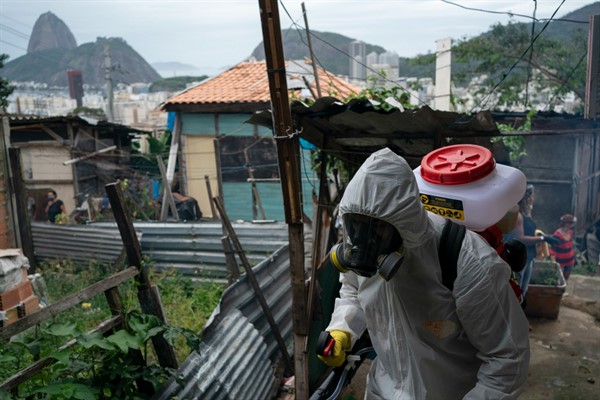Around the world, the COVID-19 pandemic is testing and revealing the limits of state authority. Simultaneously elevated and enfeebled, the nation-state has been the principal organizing unit behind the global crisis response. But often, it has lacked the legitimacy and authority it needs to manage the pandemic in the territories it purports to govern. In disputed territories and conflict zones, on remote isles in archipelagos, in favelas and urban settlements, citizens may look to the state for protection. But there at the margins, where the world’s most vulnerable populations often live, communities are instead enduring the pandemic without help from, and sometimes in spite of, the state.
Even though these spaces ostensibly lie beyond the control of a centralized state, they are not governance vacuums. In the absence of state authority, myriad entities are stepping up and stepping in. From cartels to community organizations, aid agencies to violent rebel groups, nonstate actors are performing vital public health functions and delivering essential services. This pandemic response beyond the reach of the state is a messy arrangement where new and adapted social and political organizations are collaborating to ensure people’s everyday survival.
Some of these groups have humanitarian goals, while others are overtly political. But regardless of their motives, their actions are reshaping power and authority, sometimes undermining the state, but more often creating new, collaborative links between governments and society. In many of these so-called ungoverned spaces, as sociologist Philip Abrams put it, “the state is not the reality which stands behind the mask of political practice. It is itself the mask which prevents our seeing political practice as it is.” Carefully observing what unfolds in these spaces now may reveal the nature of power within them—and, perhaps, the future of state authority more generally.

